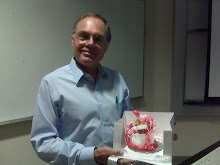Web Video ... is Anybody Watching?
TV-like programming on the Internet has no rules ... no stern, moralizing Federal Communications Commission, no image-conscious advertisers, no constricting network time constraints.
So for Kevin Pollak, the show is all about finding someone interesting to interview and let the cameras and conversation flow, for however long it takes. It's different, it's interesting, but is it what the viewers really want? And is it really a blueprint for future shows on the Internet. Los Angeles Times Reporter David Sarno ponders such questions in a recent article.

